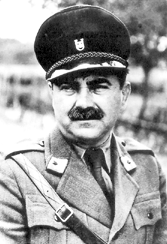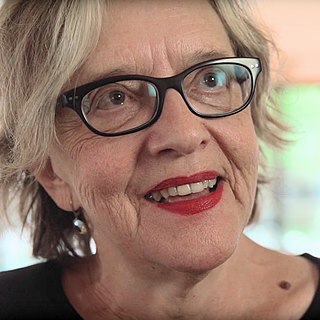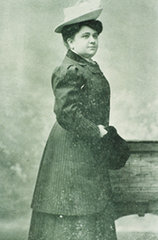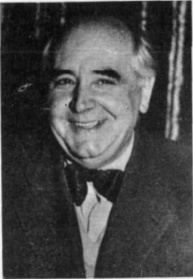 W
WMate Balota, born Mijo Mirković, was a prominent Croatian poet, novelist and economist.
 W
WIvan "Ivo" Brešan was a Croatian playwright, novelist and screenwriter, known for political satire. His work included screenplays written with his son Vinko.
 W
WIvana Brlić-Mažuranić was a Croatian writer. Within her native land, as well as internationally, she has been praised as the best Croatian writer for children.
 W
WMile Budak was a Croatian politician and writer best known as one of the chief ideologists of the Croatian fascist Ustaša movement, which ruled the Independent State of Croatia during World War II in Yugoslavia from 1941–45 and waged a genocidal campaign of extermination against its Roma and Jewish population, and of extermination, expulsion and religious conversion against its Serb population.
 W
WBoris Dežulović is a Croatian journalist, writer and columnist, best known as one of the founders of the now defunct satirical magazine Feral Tribune.
 W
WSlavenka Drakulić is a Croatian journalist, novelist, and essayist whose works on feminism, communism, and post-communism have been translated into many languages.
 W
WDražen Katunarić is a Croatian poet, essayist, novelist and editor.
 W
WHrvoje Hitrec is a Croatian writer and politician. He is notable for his works for children and youth, most famous of his works being Smogovci, but he also wrote novels, film and TV scripts, dramas. He received several notable Croatian literary awards: "Ksaver Šandor Gjalski," "Ivana Brlić Mažuranić" and "Grigor Vitez."
 W
WMarija Jurić, known by her pen name Zagorka, was a Croatian journalist, writer and women's rights activist. She was the first female journalist in Croatia and is among the most read Croatian writers.
 W
WJanko Polić Kamov was a Croatian writer and poet. His literary work was small, but very significant, because in his poems and plays he expressed his anger and displeasure over hypocrisy and injustice of his contemporaries in a way unprecedented in Croatian literature. His masterwork is a modernist novel Isušena kaljuža (1906–1909) saturated with psychosexual and spiritual conflicts of the iconoclastic first-person narrator and later described as a proto-existentialist prose, written decades before the literary movement's appearance. Kamov's novel, invariably described as the premier Croatian avant-garde major prose work, was printed for the first time in 1956. Because of that he earned reputation as one of the greatest rebels and iconoclasts in history of Croatian culture.
 W
WAntun "Ante" Kovačić was a Croatian writer who is best known for his magnum opus work U registraturi.
 W
WJosip Kozarac was a Croatian writer.
 W
WMiroslav Krleža was a Croatian writer and a prominent figure in cultural life of both Yugoslav states, the Kingdom (1918–1941) and the Socialist Republic. A one time Vice President and General Secretary of the Yugoslav Academy of Sciences and Arts (JAZU), he has often been proclaimed the greatest Croatian writer of the 20th century and beyond.
 W
WEugen Kumičić was a prominent Croatian writer and politician. Kumičić was one of the most prolific Croatian novelists of the realism era and a pioneer of naturalism in Croatian literature.
 W
WJanko Leskovar was a Croatian novelist. His literary form was marked with the novel Misao na vječnost.
 W
WMato Lovrak was a Croatian writer for children.
 W
WRanko Marinković was a Croatian novelist and dramatist.
 W
WVjenceslav Novak was a Croatian Realist writer, dramatist, and music historian.
 W
WPavao Pavličić is a Croatian writer, literary historian and translator whose main focus are crime novels. He writes for both adults and children.
 W
WVedrana Rudan is a Croatian journalist and novelist.
 W
WPetar Šegedin was a Croatian writer.
 W
WAugust Ivan Nepomuk Eduard Šenoa was a novelist. Born to an ethnic German and Slovak family, Šenoa became a key figure in the development of an independent literary tradition in the Croatian language and shaping the emergence of the urban Croatian identity of Zagreb and its surroundings at a time when Austrian control was weaning. He was a literary transitional figure, who helped bring Croatian literature from Romanticism to Realism and introduced the historical novel to Croatia. He wrote more than ten novels, among which the most notable are: Zlatarovo zlato, Čuvaj se senjske ruke, Seljačka buna, and Diogenes (1878).
 W
WSlobodan Šnajder is a Croatian writer and publicist.
 W
WAnte Tomić is a Croatian writer and journalist.
 W
WGoran Tribuson is a Croatian prose and screenplay writer.
 W
WJagoda Truhelka was a Yugoslav writer and pedagogist. A native of Slavonia, Truhelka worked as teacher and headmistress in Osijek, Zagreb, Gospić, Banja Luka, and Sarajevo. Her novels are notable for focusing on female characters and discussing women's rights, but Truhelka is best known for her children's literature.
 W
WVinko Vrbanić is a Croatian writer who lives in Vinkovci, Croatia. He is best known for his published short stories, novellas Furmani [Carters] and Sokolov let [Flight of the Falcon], and coming-of-age novel Glasovi u šumi [Voices in the Forest]. He graduated from the School of Agriculture in Požega, worked in construction, and fought in the Croatian War of Independence.
 W
WPetar Zoranić was a Croatian writer and poet from Zadar. He is most important as the author of Planine, regarded as the first Croatian novel. Pastoral in nature, the novel was written in 1538 and published in 1569. Zoranić wrote two other works, Ljubveni lov and Vilenica, but neither of these has survived.